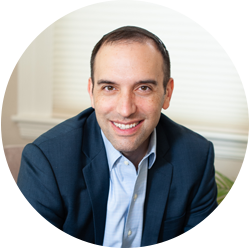
Shalom Chaverim,
As we emerge from last week’s holiday of Shavuot, which commemorates the giving and receiving of the Torah, and at a time of year when many are graduating, I want to reflect on the power and importance of Jewish education. Last week, I witnessed an exquisite example of great high school education that also has something to teach us about Jewish life and our Jewish future.
I returned to Gann Academy’s Bernice Krupp Black Box Theater to support one of my former students and to attend the musical theater production created for her senior project. I have seen many musical revues over the years, but never had I witnessed the original production of a 24-song play written, composed, and directed entirely by a high school senior. The show was excellent — high quality, imaginative, and hilarious — but that was not the most extraordinary thing about this project.
It is not uncommon for students to direct their peers in high school theater. But this play flipped the script of traditional education as it was performed entirely by Gann faculty and staff. Twelve adults volunteered their time and talent and rehearsed for more than 100 hours to prepare for the performance. On top of the sheer time commitment, these adults took risks and made themselves vulnerable as performers and as learners, directed and taught by a student.
What an unparalleled display of dedication to student learning and self-actualization! As one teacher put it in her reflections afterward, this took the famous Talmudic saying of Rabbi Chanina to an entirely new level. In Tractate Ta’anit, Rabbi Chanina reflects on his experience as a student and teacher: “I have learned a lot from my teachers; and even more from my peers; but I have learned most from my students.”
This statement reveals a truth about teaching. Great educators are constantly learning themselves. As obvious as it may seem, we shouldn’t overlook how radical and countercultural this is to so many learning environments. The teacher is not “sage on the stage” nor fountain of wisdom transmitting knowledge one-directionally to the students. This kind of teacher is open, vulnerable, unfinished, and always learning alongside his or her students. It means admitting that we don’t have all the answers.
Rabbi Chanina also implies a truth about learning. In the words of Greek philosopher Plutarch, “The mind is not a vessel to be filled but a fire to be kindled.” How much truer this is for the heart! In great education, students are not passive consumers of knowledge but rather creators, producers, teachers, and leaders themselves.
Skills and knowledge are critical foundations. Indeed, this high school senior spent years in music classes learning to translate the music in her head on to the page. Yet, while many educational environments conclude by testing and grading skills and knowledge, this should be just the beginning. The real questions are: What will our students and children do with the knowledge and skills they acquire, and how can we authentically empower them to apply their learning in new and creative ways?
These are questions for educators that also speak to the challenge of transmitting Judaism to our next generation.
Last week, I also spoke with a group of young adults from CJP’s LEADS program. When I asked them what it will take for us to ensure that their generation will stay engaged with Jewish life in the future, one answered, “create opportunities for us to lead and give us a seat at the table.” We can’t simply create cool (often free) programs that entice our children and young adults to consume Jewish life. We need to educate and inspire them with a foundation of skills, knowledge and transformational experiences; and then, we need to authentically empower them by getting out of the way and giving them the reins of the Jewish future.
This can be scary. For older generations, it means making ourselves vulnerable and not knowing exactly what the future will look like. I’m not even sure how we will do this, but I guess that is precisely the point. We’ll all need to flip the script and learn through it together.
Mazel tov to our graduates and Shabbat Shalom,
Rabbi Marc Baker

About the Author
CJP President and CEO Rabbi Marc Baker is an educator, writer, and leadership mentor who is devoting his life to Jewish learning and building Jewish communities.
